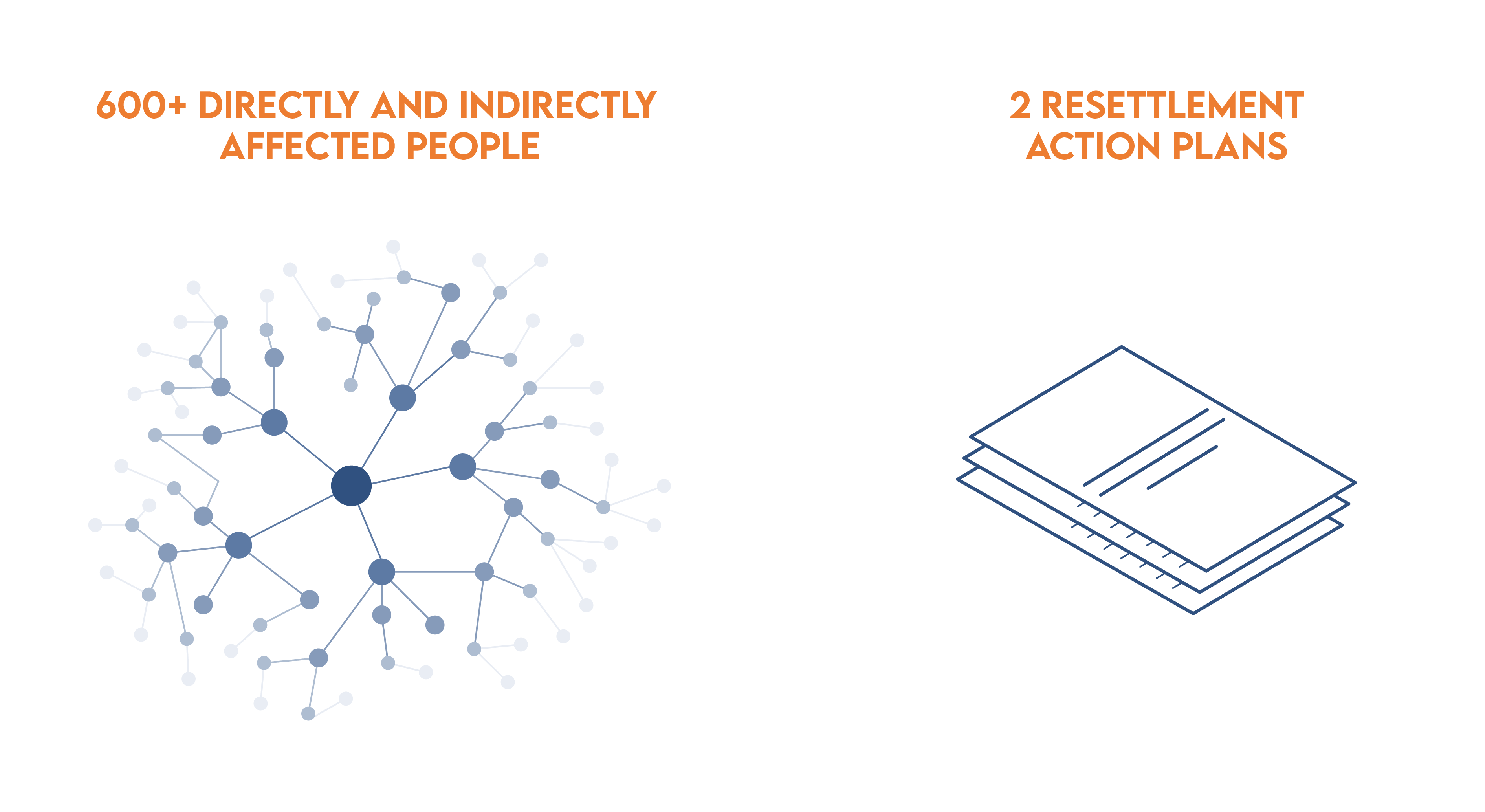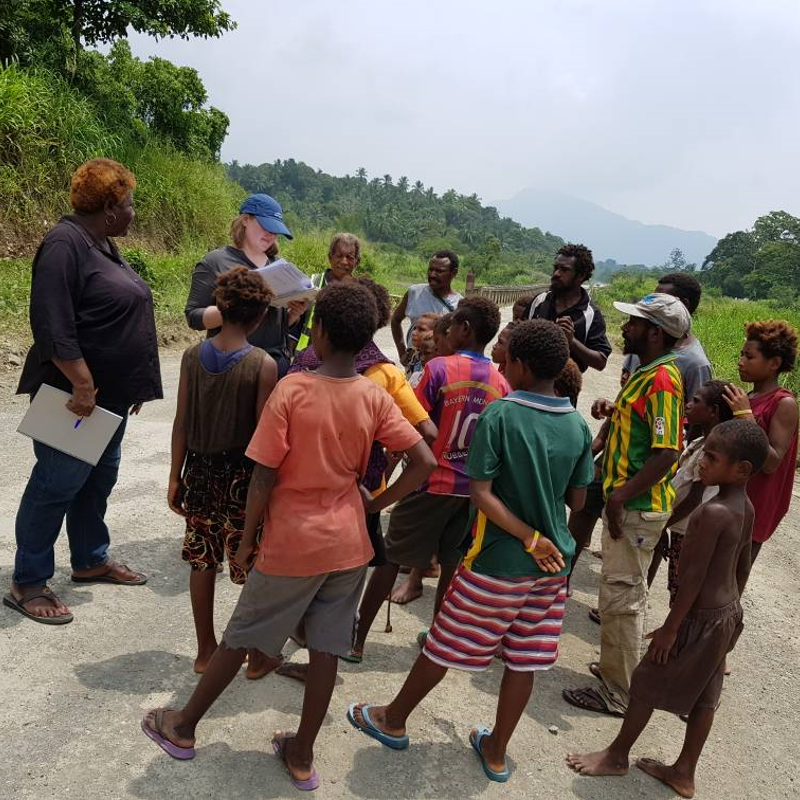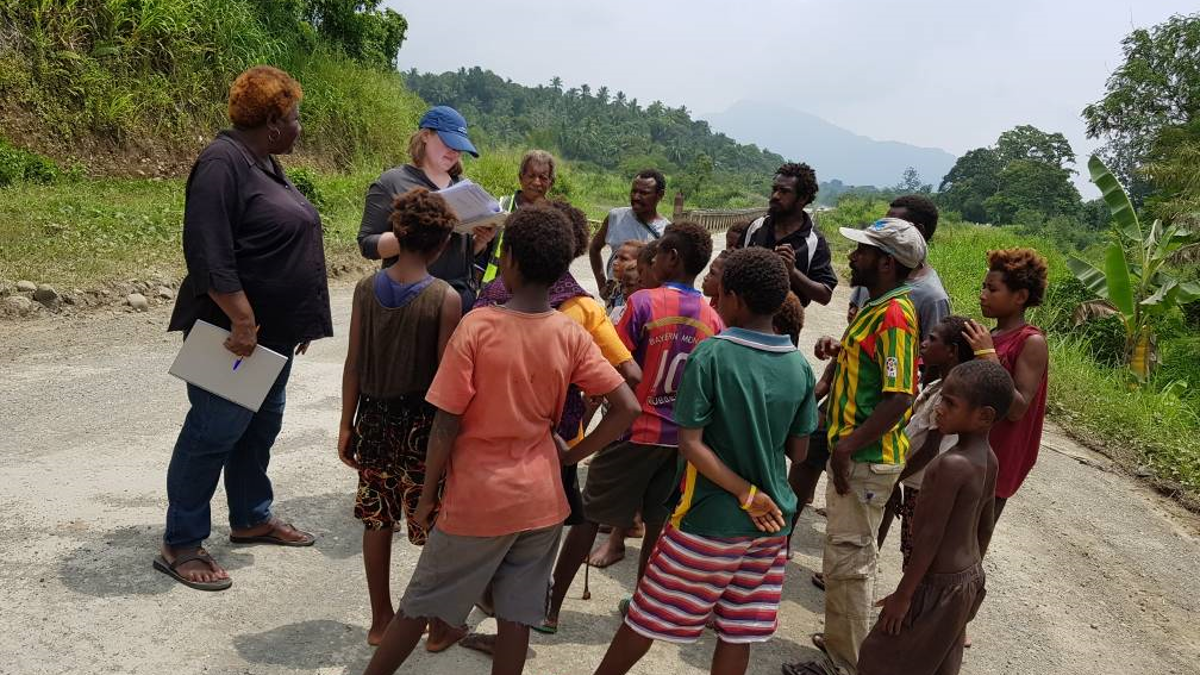
The Implementation Support for the Papua New Guinea (PNG) Rural Bridges project, funded by the EIB with a budget of EUR 3 million, was implemented by NTU from 2017 to 2023. This project supported the construction of 9 new bridges in PNG's rural areas, significantly enhancing access to markets and social services for the country's rural population. In line with EIB and ADB social safeguards, the project included the preparation and implementation of Resettlement Action Plans (RAP).
Resettlement poses challenges, both for those being resettled and for those designing and implementing the process. However, managed properly, it results in long-term benefits for affected communities. However, these benefits can only materialise if there is upfront investment in listening to and involving affected individuals to develop solutions that meet their needs. Within the land acquisition process, over 100 people were directly impacted (and over 500 - indirectly) by the project due to removal/relocation of assets including trade stores, market stalls and gardens. NTU managed and monitored the RAP preparation and implementation with excellent results.

Implementation
NTU verified and updated the 2 RAPs against the Legal Framework for Resettlement in PNG and included the EIB Social Standards to ensure adherence to best practices. The RAPs addressed key aspects such as the impacts on the Ramu and Sepik Highways’ project; relevant laws and regulations; socio-economic profiles; land acquisition, compensation and entitlements; disclosure of information and public consultations; grievance mechanism; and the implementation and monitoring of the budget and schedule.
Efficient and clear communication was paramount for the resettlement and compensation process. In this project, NTU implemented participation mechanisms to discuss with local communities and stakeholders the project and the modalities of the resettlement plans. Through community-based consultations, meetings with the affected people and socio-economic surveys, NTU guaranteed that all directly affected people were compensated and empowered. A complaints register was kept updated to guarantee that all disputes were addressed following the resettlement plans and that workshops were held for the rural communities.
NTU supported the overall monitoring and evaluation process to ensure that the RAPs were implemented according to the EIB and ADB social safeguard guidelines, that the project-affected populations received full compensation, and that their living conditions were improved, or at least restored to their prior state.
Impact
The bridges, as part of a longer-term development strategy to enhance connectivity between rural and urban PNG, resulted in improved market links and access to a wider range of goods and services for all people living in the road catchment area. Additional benefits to the affected communities included:
-
Opportunity to invest compensation in clan-based activities such as social support for pre-school children and elderly clan members to ensure greater levels of social inclusion and maintain clan social cohesiveness.
-
Employment opportunities were offered to the affected population by the contractors that not only bring extra income but also allow acquiring non-agricultural skills without having to leave the local community.
-
Through livelihood improvement training, affected land-users had the opportunity to learn experientially how to diversify crop production possibly with newer and higher yielding varieties or different cropping regimes and improve upon traditional land management practices.

SDGs





